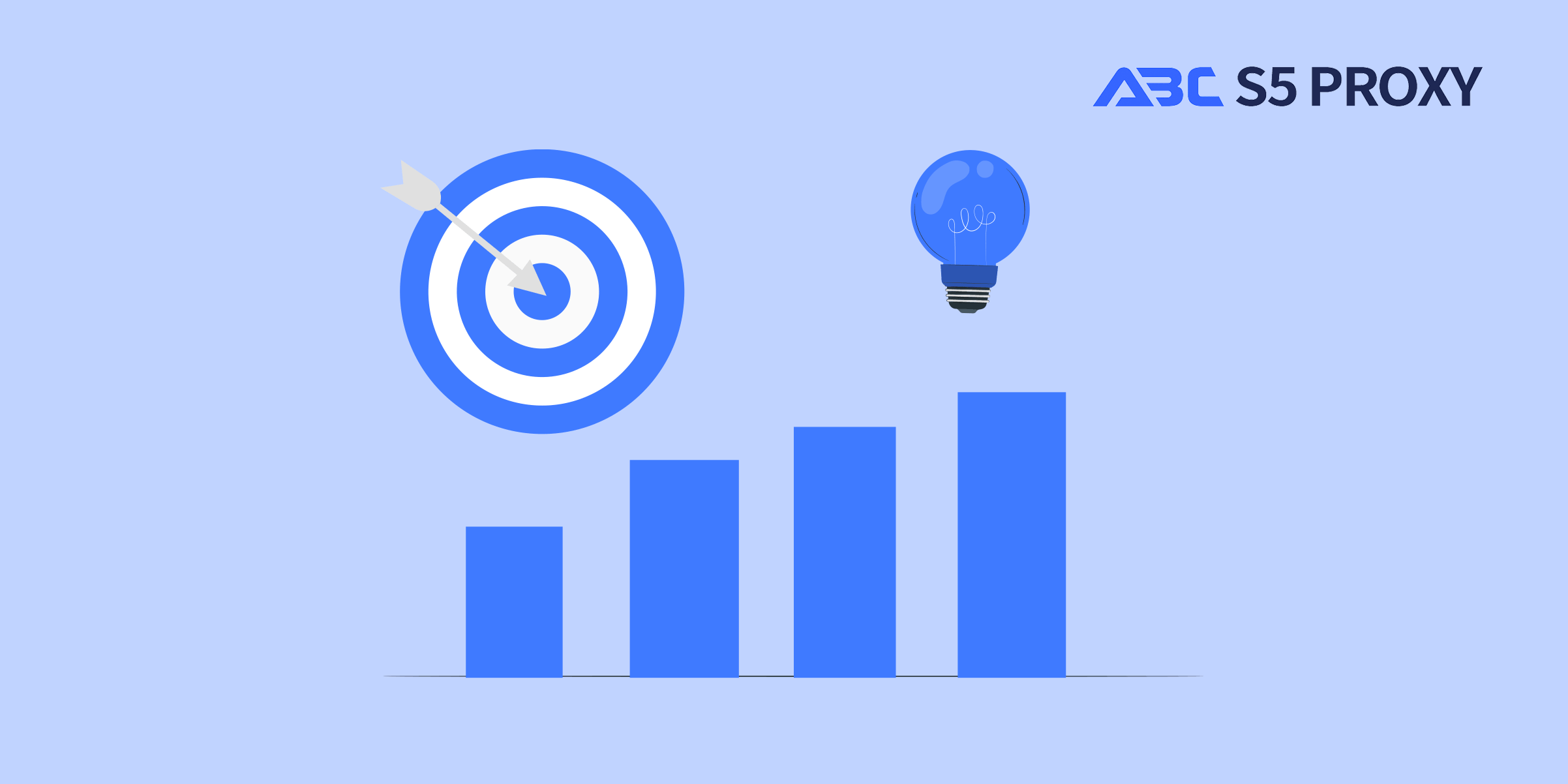Residential Proxies
Allowlisted 200M+ IPs from real ISP. Managed/obtained proxies via dashboard.

Proxies Services
Residential Proxies
Allowlisted 200M+ IPs from real ISP. Managed/obtained proxies via dashboard.
Residential (Socks5) Proxies
Over 200 million real IPs in 190+ locations,
Unlimited Residential Proxies
Unlimited use of IP and Traffic, AI Intelligent Rotating Residential Proxies
Static Residential proxies
Long-lasting dedicated proxy, non-rotating residential proxy
Dedicated Datacenter Proxies
Use stable, fast, and furious 700K+ datacenter IPs worldwide.
Mobile Proxies
Dive into a 10M+ ethically-sourced mobile lP pool with 160+ locations and 700+ ASNs.
Scrapers
Collection of public structured data from all websites
Proxies
Residential Proxies
Allowlisted 200M+ IPs from real ISP. Managed/obtained proxies via dashboard.
Starts from
$0.6/ GB
Residential (Socks5) Proxies
Over 200 million real IPs in 190+ locations,
Starts from
$0.03/ IP
Unlimited Residential Proxies
Unlimited use of IP and Traffic, AI Intelligent Rotating Residential Proxies
Starts from
$1816/ MONTH
Rotating ISP Proxies
ABCProxy's Rotating ISP Proxies guarantee long session time.
Starts from
$0.4/ GB
Static Residential proxies
Long-lasting dedicated proxy, non-rotating residential proxy
Starts from
$4.5/MONTH
Dedicated Datacenter Proxies
Use stable, fast, and furious 700K+ datacenter IPs worldwide.
Starts from
$4.5/MONTH
Mobile Proxies
Allowlisted 200M+ IPs from real ISP. Managed/obtained proxies via dashboard.
Starts from
$1.2/ GB
Scrapers
Web Unblocker
Simulate real user behavior to over-come anti-bot detection
Starts from
$1.2/GB
Serp API
Get real-time search engine data With SERP API
Starts from
$0.3/1K results
Scraping Browser
Scale scraping browsers with built-inunblocking and hosting
Starts from
$2.5/GB
Documentation
All features, parameters, and integration details, backed by code samples in every coding language.
TOOLS
Resources
Addons
ABCProxy Extension for Chrome
Free Chrome proxy manager extension that works with any proxy provider.
ABCProxy Extension for Firefox
Free Firefox proxy manager extension that works with any proxy provider.
Proxy Manager
Manage all proxies using APM interface
Proxy Checker
Free online proxy checker analyzing health, type, and country.
Proxies
AI Developmen
Acquire large-scale multimodal web data for machine learning
Sales & E-commerce
Collect pricing data on every product acrossthe web to get and maintain a competitive advantage
Threat Intelligence
Get real-time data and access multiple geo-locations around the world.
Copyright Infringement Monitoring
Find and gather all the evidence to stop copyright infringements.
Social Media for Marketing
Dominate your industry space on social media with smarter campaigns, anticipate the next big trends
Travel Fare Aggregation
Get real-time data and access multiple geo-locations around the world.
By Use Case
English
繁體中文
Русский
Indonesia
Português
Español
بالعربية

Title: JSON vs. CSV: Main Differences
In the world of data exchange and storage, two formats stand out for their simplicity and widespread use: JSON (JavaScript Object Notation) and CSV (Comma-Separated Values). Both formats are commonly employed to represent and transmit data in a structured manner, but they differ significantly in their syntax, capabilities, and areas of application. Understanding the key differences between JSON and CSV is crucial for developers, data analysts, and anyone working with data in these formats.
The primary difference between JSON and CSV lies in their syntax and structural approach.
JSON is a lightweight data-interchange format that is easy for humans to read and write, and for machines to parse and generate. It is based on the JavaScript programming language's syntax but is language-independent. JSON objects are written as name/value pairs, with curly braces {} enclosing the whole object and square brackets [] enclosing arrays. Values can be strings (in double quotes), numbers, arrays, objects, true, false, or null. This hierarchical structure allows for complex data representation, making JSON ideal for transmitting structured data over a network.
CSV, on the other hand, is a simple text-based format that uses commas to separate values and lines to separate records. It does not have a hierarchical structure like JSON; instead, it represents data in a flat, tabular form. Each line of a CSV file represents a record, and the values within each record are separated by commas (or other delimiters). CSV files are often used to store and exchange tabular data, such as spreadsheets or database tables, where each column represents a different field and each row represents a record.
Flexibility is another significant difference between the two formats. JSON's hierarchical structure enables it to represent complex data structures, including nested objects and arrays. This makes JSON highly flexible and suitable for representing data with complex relationships and hierarchies. It is also easy to embed JSON data within HTML or JavaScript, making it a popular choice for web development.
CSV, on the other hand, is more limited in its capabilities. Due to its flat structure, CSV cannot directly represent nested data or complex relationships. While it is possible to encode nested data by using special delimiters or encoding conventions, such approaches can be cumbersome and difficult to parse reliably. As a result, CSV is best suited for representing simple, tabular data that does not require a hierarchical structure.
The choice between JSON and CSV often depends on the specific use case.
JSON is widely used for data exchange between web applications, APIs, and microservices. Its structured format makes it easy to parse and manipulate in various programming languages, and its ability to represent complex data structures makes it ideal for transmitting data with nested relationships. JSON is also commonly used to store configuration settings and user preferences in web applications.
CSV, on the other hand, is often used for data import and export, particularly in applications that deal with tabular data, such as spreadsheets and databases. CSV files are easy to create and edit using text editors or spreadsheet software, and they can be easily imported into various database systems and analysis tools. CSV is also widely supported by programming languages and data processing libraries, making it a convenient format for data exchange in many scenarios.
In conclusion, JSON and CSV are two widely used data formats that differ significantly in their syntax, capabilities, and use cases. JSON, with its hierarchical structure and ability to represent complex data structures, is ideal for data exchange between web applications, APIs, and microservices. CSV, on the other hand, is better suited for representing simple, tabular data and is commonly used for data import and export. Choosing the right format for a particular use case depends on the specific requirements of the application and the data being represented.
Featured Posts
Popular Products
Residential Proxies
Allowlisted 200M+ IPs from real ISP. Managed/obtained proxies via dashboard.
Residential (Socks5) Proxies
Over 200 million real IPs in 190+ locations,
Unlimited Residential Proxies
Use stable, fast, and furious 700K+ datacenter IPs worldwide.
Rotating ISP Proxies
ABCProxy's Rotating ISP Proxies guarantee long session time.
Residential (Socks5) Proxies
Long-lasting dedicated proxy, non-rotating residential proxy
Dedicated Datacenter Proxies
Use stable, fast, and furious 700K+ datacenter IPs worldwide.
Web Unblocker
View content as a real user with the help of ABC proxy's dynamic fingerprinting technology.
Related articles

The 2026 Expert Guide to SERP Scraping & SEO Proxies
Discover the ultimate guide for SEO & SERP proxies in 2026. Enhance your search engine optimization strategies with the latest proxy solutions. Stay ahead in the digital landscape.

Unleash Victory with the Best League of Legends Proxies: A Winning Edge
Looking for the best League of Legends proxies? Our top-quality proxies offer reliable connections for your gaming needs. Enhance your gaming experience with fast and secure proxies designed specifically for League of Legends. Boost your performance and stay ahead of the competition with the best League of Legends proxies available.